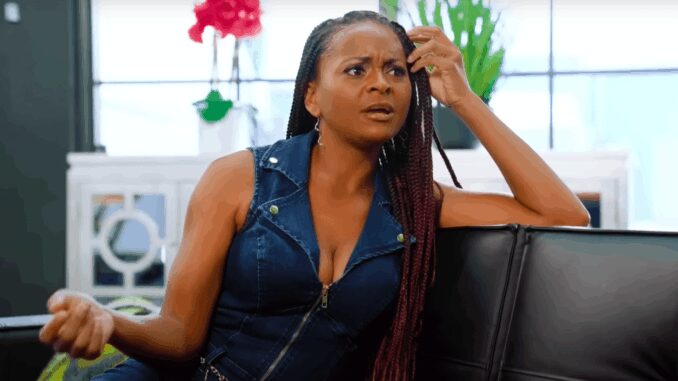
When Loyalty and Love Collide: Royce Opens Up on the Shaunie and Evelyn Drama
The world of reality television thrives on conflict, and "Basketball Wives" is no exception. But behind the manufactured drama, real friendships and loyalties exist, often strained and tested under the relentless glare of the cameras. Royce Reed, a former mainstay of the show, offered a fascinating perspective on the complex dynamic between Shaunie O'Neal and Evelyn Lozada, two central figures whose relationship has been a rollercoaster of love, loyalty, and ultimately, painful discord. While she wasn't always directly involved in their feuds, Royce's insider knowledge and her own struggles with the pressures of the show illuminate the profound impact such rifts can have.
Royce’s perspective on the Shaunie-Evelyn drama stems from understanding the unique power dynamic within the group. Shaunie, as the matriarch and often perceived leader, held considerable sway. Her opinions carried weight, and her alliances were crucial for navigating the treacherous waters of the show. Evelyn, known for her outspoken nature and unwavering loyalty to her friends, had carved out a significant space for herself, challenging the status quo when necessary. The tension arose, according to Royce's accounts and nuanced commentary, from a confluence of factors: evolving personal lives, differing priorities, and the constant pressure to create compelling television.
Royce often alluded to the fact that Shaunie, perhaps unintentionally, cultivated a system where loyalty was paramount, sometimes to the detriment of individual relationships. "It felt like you had to choose a side," Royce once commented in an interview, echoing the sentiments of many viewers. This pressure could amplify disagreements and turn minor misunderstandings into full-blown wars. Evelyn, with her fiercely independent spirit, often found herself at odds with this unspoken rule. Her unwavering support for her own circle of friends, even when it clashed with Shaunie's preferences, inevitably created friction.
Furthermore, Royce shed light on the role of external forces in exacerbating the conflict. Producers, eager to maximize viewership, often manipulated situations to create tension. The editing process, as Royce frequently pointed out, could selectively showcase certain interactions, shaping narratives and distorting the truth. This created a breeding ground for misunderstandings and fueled the flames of animosity between Shaunie and Evelyn. Royce often spoke about the difficulty of discerning genuine feelings from performance, highlighting the blurred lines between reality and entertainment that plagued their interactions.
The impact of social media also played a significant role. In the age of instantaneous communication, disagreements that might have remained private in the past were now aired for the world to see. Cryptic tweets, pointed Instagram posts, and viral videos served as fuel for the fire, escalating the conflict and further entrenching both women in their respective positions. Royce, having experienced the negative consequences of online drama firsthand, understood the devastating power of social media to amplify negativity and erode relationships.
Ultimately, Royce’s perspective on the Shaunie and Evelyn drama is one of cautious observation and tempered empathy. She acknowledged the validity of both perspectives, recognizing the pressures they faced as women navigating a high-profile, often cutthroat environment. She understood Shaunie’s desire to maintain control and loyalty within her inner circle, and she empathized with Evelyn’s determination to remain true to herself and her friends, even in the face of adversity.
While Royce may not have definitively chosen a side in the Shaunie-Evelyn conflict, her insights offer a valuable glimpse into the complexities of reality television and the fragility of relationships under its intense scrutiny. Her willingness to speak openly about the behind-the-scenes dynamics underscores the profound impact that such drama can have on the individuals involved, reminding us that beneath the glittering facade of entertainment, real people grapple with real emotions, loyalties, and the enduring quest for authenticity in a world often defined by manufactured conflict. In the end, Royce’s reflections serve as a cautionary tale, urging us to remember that even in the midst of drama, empathy and understanding are essential for navigating the often-turbulent waters of friendship and loyalty.